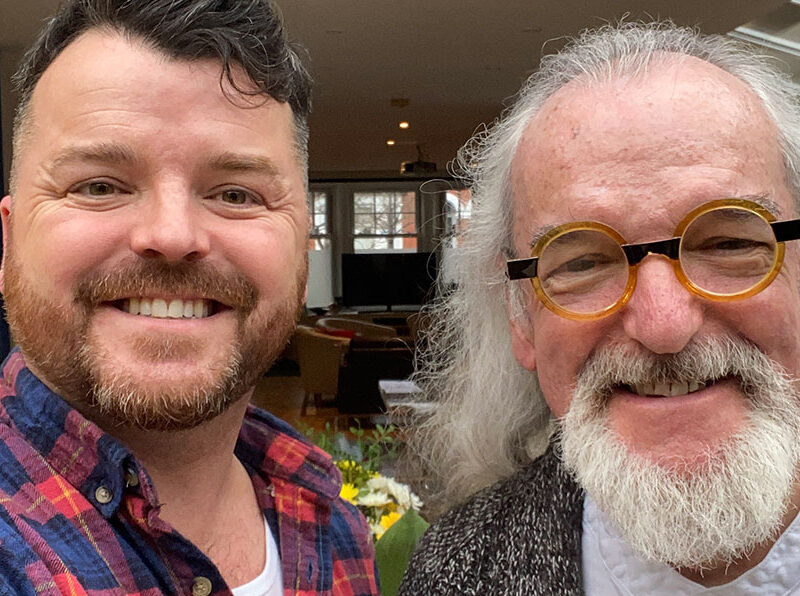
Gut Health – what you need to know
Gut Health – what you need to know
Ellie Holmes looks at the link between gut health and mental and physical wellbeing
There has been a huge amount of interest in gut health recently, with its role in both our physical and mental health, and an imbalance could be at the root of everything from allergies and auto-immune conditions to brain health and depression.”
“Our gut microbiome is like a fingerprint, unique to each individual,” says Anna Pettit, gut specialist dietitian at The Gut Health Clinic (www.theguthealthclinic.com). “It consists of trillions of bacteria, viruses, fungi and other microorganisms, which co-exist in symbiosis. When the balance is disturbed, for example, with the use of antibiotics and medications that affect the gut, poor diet, chronic stress, and gut infections, it can lead to dysbiosis, which can predispose people to disease,” she explains.
Jules Anderson started her company Feel Glorious over 10 years ago to help people revitalise their health through lifestyle and nutrition. She sees gut health as paramount. “Advances in nutritional science and technologies are enabling us to see in more detail what is going on in the gut, and the role of the millions of gut bugs that make up our microbiome.” Recent research has looked in detail at the relationship between the gut and autoimmune diseases. Jules explains: “Two thirds of our immune system is housed in our guts and gets triggered by unfamiliar, foreign substances which it then has to act to remove. This is done with an inflammatory response.
“When we are healthy most of what we take in is tolerated, but if you have ‘leaky gut’, are eating lots of processed foods or aren’t chewing your food properly, large particles are let into the blood stream and your immune system gets over-activated, which can cause autoimmune conditions.”
Twin sisters Lisa and Alana MacFarlane (pictured top) were brought up in Scotland on deep-fried pizza and yum yums. The pair were the official Love Island DJs in their 20s, and gut health was not on their radar. But when they volunteered for twins research at Kings College London, everything changed. They realised that whilst their DNA was identical, their gut microbes had major differences. Fascinated with the results, they started thegutstuff.com – a one-stop-shop for all gut knowledge.
“The main thing that interested us was the link between gut health and mental health. Physically the gut and the brain are connected by the Vagus nerve which is why when we feel nervous or excited we get butterflies in our stomach.” And consider the chemical connections between the gut and brain, transported by neurotransmitters. It is thought that 95 per cent of serotonin is produced in your gut.
Lisa and Alana appeared in a TV series called ‘Know your sh!t’ and it is their aim to bring gut health into the mainstream. “Gut health has been hidden in scientific ivory towers and at the back of expensive health stores, but science is showing that changes to the gut can be simple, and breaking down the poo taboo is what it’s all about.”
Lisa attributes the easiest way for anyone to take care of their gut is by taking in lots of fibre. “We know that fibre is good for our gut, but we also know nine out of ten people don’t get enough fibre.” To understand why fibre is so important, we need to know where it fits into the microbiome. “When the gut bacteria ferments fibre, it produces the by-produces such as short chain fatty acids that regulate the growth of gut cells and keep the gut lining healthy,” adds Anna Pettit.
Anna Boglione, founder of THE GUT, a food and wellness platform, has released her first book Recipes to Reconnect. She recommends making ferments, such as little jams or kimchis and emphasises the importance of the fibrous foods such as leafy greens like kale and cabbage. But make the changes on a small incremental scale. It is best to start with a little teaspoon at each meal, rather than overloading your gut and making you feel bloated.
What are the five top things we can do to improve and nurture our gut health?
· Stop eating on the run / at your desk / in the car! Sit down, eat slowly, chew well and relax & enjoy your food.
· Eat lots of colourful fruits and veg. These contain powerful phytochemical (the compounds that give them bright colours) that act as medicine – and are anti-inflammatory, antioxidant, detoxifying properties and are incredibly healing for your body.
· Eat less sugar. Sugar feeds the bad bugs in your gut, which not only causes bloating and gas but also unbalances your microbiome, causes inflammation in your system and can lead to a multitude of health issues
· Reduce or remove processed foods. Your body doesn’t recognise these so can’t digest them properly.
· Fast for 12 hours overnight. Your system needs this time not just to rest but to heal the gut lining and clean up all the waste products and toxins in your system






